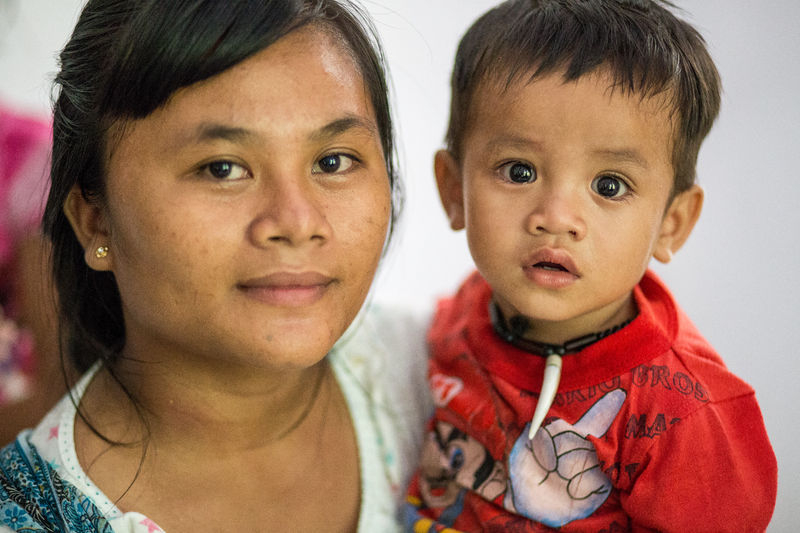
31 October 2022, – A supplemental issue published today in the Journal of the Pediatric Infectious Diseases Society identifies the challenges in controlling childhood tuberculosis (TB) in 2022 and beyond. ‘What’s New in Childhood Tuberculosis highlights areas that can accelerate the prevention, diagnosis, and treatment of a persistent threat to children worldwide.
Despite being preventable, treatable, and curable, TB remains one of the most serious infectious diseases affecting children, with an estimated 1.2 million cases and more than 215,000 deaths in children under 15 years of age in 2021—or close to 600 deaths per day.
In the supplement’s nine articles, experts in childhood TB address several aspects of the epidemic, including the interaction of TB with HIV infection and COVID-19, medication interactions and adherence, diagnostics, new treatments, systematic and programmatic approaches to TB care and services, and vaccine development. The authors recognize both the advances that have been made in childhood TB and the need for further resources that will ensure everyone has adequate access to the knowledge and care necessary to stop this epidemic.
“The Pediatric Infectious Disease Society is pleased to have a journal supplement dedicated to ongoing efforts to address childhood tuberculosis,” said Pediatric Infectious Disease Society President C. Buddy Creech, MD, MPH, FPIDS. “Achieving our vision of promoting the health and well-being of children through the prevention and control of infectious diseases worldwide would fall incomplete without a commitment to tuberculosis. A special note of thanks to our partners at the Stop TB Partnership for their indispensable contributions in bringing this supplement to fruition.”
“Too many children die needlessly every year from this preventable, diagnosable, treatable, and curable infectious disease,” said Dr. Lucica Ditiu, Executive Director of the Stop TB Partnership. “In 2022, this ongoing tragedy is simply not acceptable. We owe it to our children to protect them at all costs from falling prey to this deadly disease. Recent data has shown us that TB is on the brink of replacing COVID-19 as the world’s deadliest infectious disease. I urge the international community to heed our call by providing the necessary resources so we can finally put an end to this disease.”
The supplement articles are:
- Childhood Tuberculosis: Historical Perspective, Recent Advances, and a Call to Action
- Exploring the Impact of the COVID-19 Pandemic on TB Care and Prevention
- What’s Old and New in TB Vaccines for Children
- Pediatric Tuberculosis Diagnostics: Present and Future
- Tuberculosis in Children Living with HIV: Ongoing Progress and Challenges
- New Drugs and Regimens for Tuberculosis Disease Treatment in Children and Adolescents
- Social Determinants of Adherence to Treatment for Tuberculosis Infection and Disease Among Children, Adolescents, and Young Adults: A Narrative Review
- Improving Tuberculosis Case Detection in Children: Summary of Innovations and Findings from 18 Countries
- Testing and Scaling Interventions to Improve TB Infection Care Cascade
While this supplement highlights recent strides in childhood TB, it also serves as a call to action to reduce morbidity and mortality from the disease in children. There remains a need to better quantify the burden of childhood TB, including obtaining age-disaggregated data; to deploy improved diagnostic assays; to ensure child-friendly formulations of antibiotic availability, particularly to low- and middle-income countries; and to provide integrated, family-centered models of care.
About the Pediatric Infectious Disease Society (PIDS)
PIDS membership encompasses leaders across the global scientific and public health spectrum, including clinical care, advocacy, academics, government, and the pharmaceutical industry. From fellowship training to continuing medical education, research, regulatory issues and guideline development, PIDS members are the core professionals advocating for the improved health of children with infectious diseases both nationally and around the world, participating in critical public health and medical professional advisory committees that determine the treatment and prevention of infectious diseases, immunization practices in children, and the education of pediatricians. For more information, visit http://www.pids.org.
About Stop TB Partnership
The Stop TB Partnership is a unique United Nations hosted entity based in Geneva, Switzerland, committed to revolutionizing the tuberculosis (TB) space to end the disease by 2030. The organization aligns more than 2,000 partners worldwide to promote cross-sectoral collaboration. The Stop TB Partnership’s various teams and initiatives take bold and smart risks to identify, fund and support innovative approaches, ideas, and solutions to ensure the TB community has a voice at the highest political levels and that all TB-affected people have access to affordable, quality, and people-centered care.



